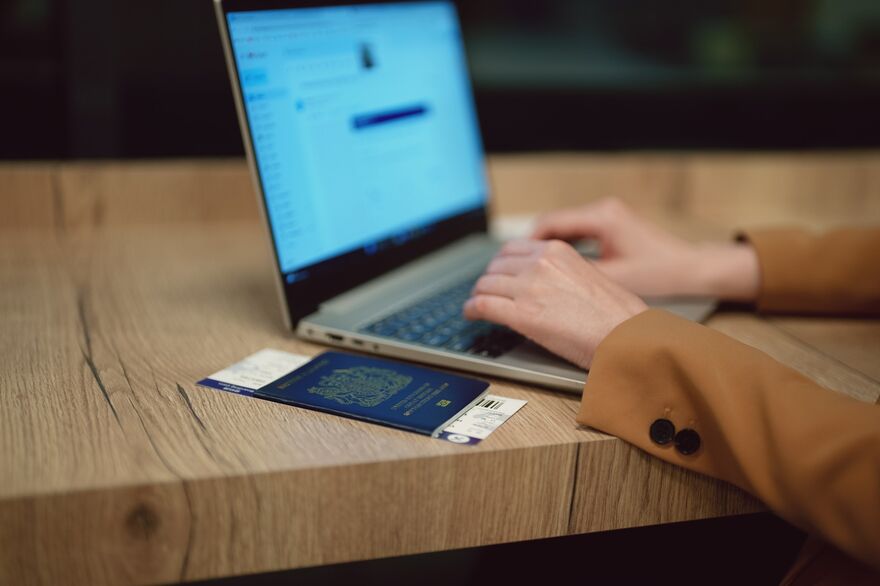Get in touch
To contact us, please fill out this form and we will get back in touch as soon as possible. Your personal data will be processed in accordance with our privacy policy which can be found here.

As the UK continues to expand its Electronic Travel Authorisation (ETA) system, employers need to be aware of how these changes will impact their business travel policies. The rollout is progressing at pace, with key dates in late 2024 and early 2025. For businesses sending employees on short-term trips to the UK, ensuring compliance with the new ETA requirements is crucial to avoid disruptions. Here’s everything you need to know about how the ETA expansion will affect your business travellers.
The UK’s ETA is a digital travel permit designed to allow pre-screening of non-visa travellers before they arrive in the UK. This system applies to nationals who do not need a visa for short stays, including business trips, family visits, and transit through the UK. The ETA is valid for multiple entries over two years, or until the traveller’s passport expires, whichever is sooner. It is similar to systems like the US ESTA or Australia’s ETA, and will be required for any short-term visits, including for business purposes.
Nationals from the following Gulf Cooperation Council (GCC) countries are already required to obtain an ETA for travel to the UK:
The ETA will soon be rolled out to cover a wider range of nationalities. The process is being completed in phases, with the next key milestones set for 2024 and 2025:
1. From 27 November 2024:
Nationals from non-European countries, including the United States, Canada, Australia, and Brazil, can apply for an ETA. It will be mandatory for entry to the UK from 8 January 2025
2. From 5 March 2025:
Nationals from European countries, including all EU member states such as France, Germany, and Italy, can apply for an ETA. It will become mandatory for entry to the UK from 2 April 2025.
A full list of countries, along with the dates when nationals of those countries can apply for an ETA, can be found on the UK Government website here.
As the UK expands the ETA system, it is important for employers to ensure their business travel policies are updated to accommodate these new requirements. Here are a few considerations for integrating the ETA process into your business traveller programme:
The application process is entirely online and can be completed through the UK Government’s website or the official ETA app. Travellers will need to provide their personal details, passport information, and travel plans. Most applications are processed within three working days, but applying well in advance is recommended to avoid potential delays.
Once approved, the ETA is electronically linked to the traveller’s passport, so there is no need for physical documentation.
Some travellers are exempt from the ETA requirement. Nationals from Ireland and the British Crown Dependencies (Isle of Man, Jersey, and Guernsey) are not required to obtain an ETA due to the Common Travel Area arrangement. Additionally, individuals holding long-term visas for the UK or British Overseas Territory passports are also exempt.
As the UK completes its ETA rollout by April 2025, businesses should act now to incorporate these new requirements into their travel programmes. By updating policies, communicating with employees, and integrating pre-travel checks, employers can ensure compliance and prevent travel delays.
For further information about these changes, please reach out to our immigration team here.
The information on this site about legal matters is provided as a general guide only. Although we try to ensure that all of the information on this site is accurate and up to date, this cannot be guaranteed. The information on this site should not be relied upon or construed as constituting legal advice and Howes Percival LLP disclaims liability in relation to its use. You should seek appropriate legal advice before taking or refraining from taking any action.
To contact us, please fill out this form and we will get back in touch as soon as possible. Your personal data will be processed in accordance with our privacy policy which can be found here.